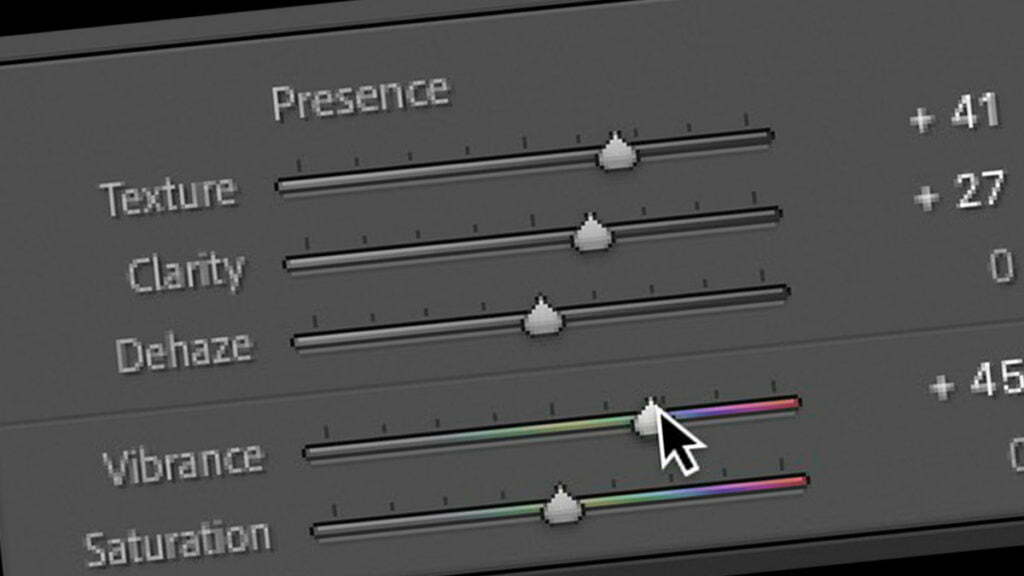
This is another one of those questions I get a lot, and the answer is more straightforward than you might think. First, here’s the difference between the two (which helps answer the question):
Saturation:
Dragging this slider to the right makes all the colors in your image more colorful.
Vibrance:
I think of this as “Smart Saturation” because it has some serious math behind it. In short, this one slider does three things: (1) It takes colors that are dull in your image it boosts those colors to make them richer and vibrant. (2) If it sees colors in your image that are already vibrant, it doesn’t affect them nearly as much. Perhaps a subtle boost in color, but not much. (3) It has a mathematical algorithm that avoids boosting the color of skin tone, so you can still use this slider without it making your subjects look sunburned or jaundiced or just too colorful. That is one smart slider.
I feel Vibrance is so much better than Saturation that the only time I ever use the Saturation slider is to remove color and desaturate the image — never to boost the color.
Now, for some strange reason that maybe Rob Sylvan would know, (’cause he knows everything), when you choose one of the Local Adjustment tools, like the Adjustment Brush or Graduated filter, every Basic Panel slider is there EXCEPT Vibrance (so your only choice is the Saturation slider). I would love to know why the Lightroom team skipped over that one slider for so many years now. There must be a reason.
Anyway, hope you found that helpful. Have a good one!
-Scott
P.S. Last week on “The Grid” our topic was “Copyright, Model Releases and how to protect your work” with guests Intellectual Property Rights Attorney Ed Greenberg and Copyright advocate Jack Resnicki. Absolutely fantastic, eye-opening, educational, and funny episode. Here’s the link.
The post Why I Don’t Use Lightroom’s Saturation Slider To Boost Color appeared first on Lightroom Killer Tips.
